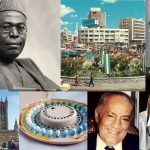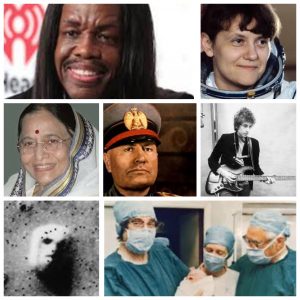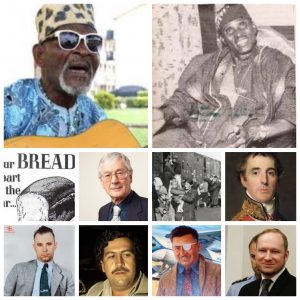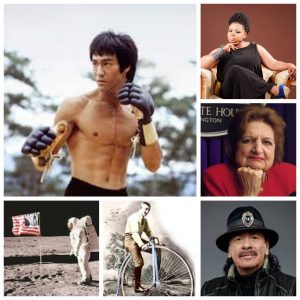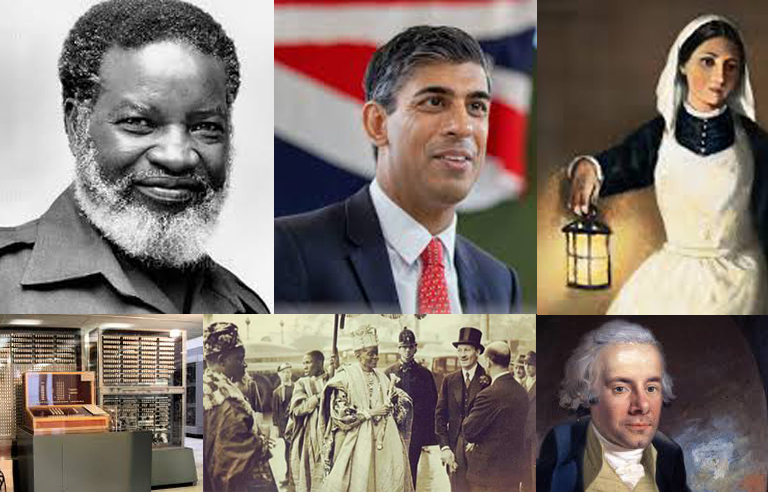
1780: Benjamin Lincoln
During the American Revolution, Major General Benjamin Lincoln of the Continental Army was forced to surrender with 7,000 troops at Charleston, South Carolina.
1789: William Wilberforce makes his first major speech on abolition in the UK House of Commons, reasoning the slave trade morally reprehensible and an issue of natural justice.

1937: The Alake of Egbaland, who is the hereditary ruler of the Egba clan of Nigeria’s Yoruba people, attends the coronation of King George VI in London. For the first time, African royalty has been invited to the installation of a king of Great Britain, which has now colonised a third of the African continent. Other attendees include the Sultan of Zanzibar and representatives of Egypt’s king and Ethiopia’s emperor.

1941: The world’s first programmable, fully automatic computer is presented
The Z3 was designed by German inventor, Konrad Zuse. The original machine was destroyed in an air raid. A replica can be seen at the Deutsches Museum in Munich.

1978: The US Commerce Department decided that hurricane names would no longer be only female.
1982: A Spanish priest attempts to assassinate Pope John Paul II
Juan María Fernández y Krohn opposed the reforms initiated by the Second Vatican Council and believed that the Pope was a Communist agent. John Paul II escaped with minor injuries.

1994: The Nagorno-Karabakh conflict ends
With the signing of the Bishkek Protocol a week earlier, Armenian and Azerbaijani diplomats had formalized the ceasefire that went into effect on May 12. The conflict itself remains unsolved.
1998: Violent clashes follow the killing of four protesters in Jakarta, Indonesia
The riots eventually led to the resignation of President Suharto.

2002: Former US President Jimmy Carter arrives in Cuba for a five-day visit with Fidel Castro, becoming the first President of the United States, in or out of office, to visit the island since Castro’s 1959 revolution.
2008: A massive earthquake rocks China
The magnitude 7.9 quake left some 69,000 people dead, 18,000 missing, and 4.8 million homeless. It was the deadliest earthquake in China since 1976 when the Tangshan earthquake killed over 240,000 people.

BIRTHS ON THIS DAY: May 12
Sam Nujoma, 95 years
Samuel Shafiishuna Daniel Nujoma, Namibian revolutionary and first President of Namibia (1990-2005) was born on May 12, 1929, in Ongandjera, South West Africa. Nujoma was a founding member and the first president of the South West Africa People’s Organization in 1960.

Rishi Sunak, 44 years
Rishi Sunak is a British politician who is currently serving as Prime Minister of the United Kingdom, as well as Leader of the Conservative Party since 2022 was born on May 12, 1980. Before this role, he served as Chancellor of the Exchequer under Boris Johnson, and he has been MP for Richmond (Yorks) since 2015.

Florence Nightingale: (May 12, 1820 – August 13, 1910)
Florence Nightingale was an English nurse known for her activities during the Crimean War, for which she earned the nickname “The Lady with the Lamp” after her late-night rounds to care for wounded soldiers. She was also a pioneer in statistics, inventing the Nightingale rose diagram—a predecessor to the modern pie chart.

Nightingale was responsible for modernizing nursing and setting high standards for sanitation, which ultimately saved countless lives. She managed a team of nurses and significantly improved the conditions at a British base hospital, where her meticulous data collection led to more efficient hospital designs and reformed healthcare policies. She died peacefully in her sleep at the age of 90.



